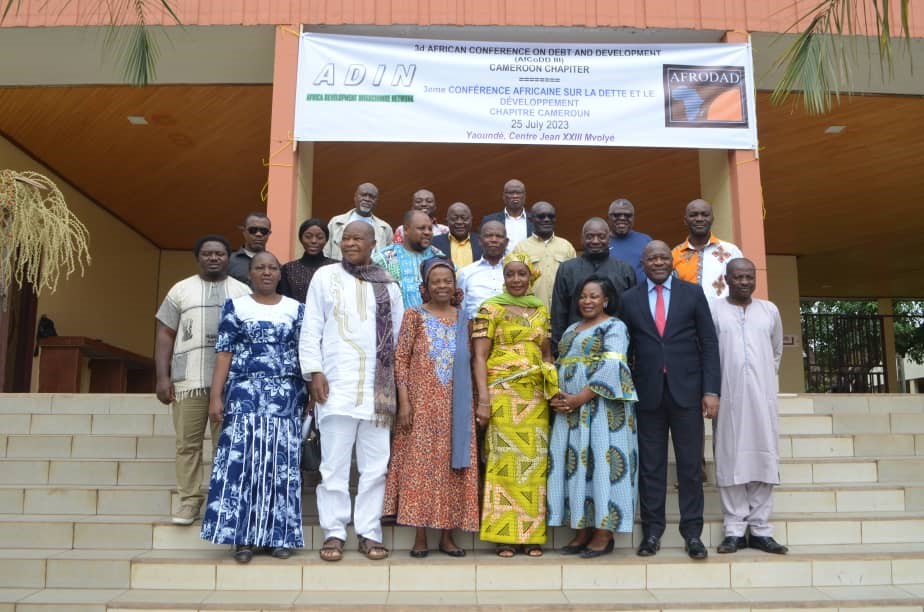By Etienne Mainimo Mengnjo
Experts drawn from the public and the private sector have again re-echoed the need for the government of Cameroon to show concern in debt management by being transparent and accountable.
The call was made on July 25 in Yaounde during a seminar that was held in prelude to the third African Conference on Debt and Development, AfCoDD III, scheduled to take place from August 30 to September 1, 2023 in Dakar, Senegal.
The event took place in the presence of representatives of government Ministries, university dons, multilateral institutions, Trade-unionists, municipal magistrates and Members of Parliament. The event, the AfCoDD III Cameroon National Chapter, was organised by the African Forum and Network on Debt and Development (AFRODAD) in collaboration with Africa Development Interchange Network (ADIN).
Opening the event, AFRODAD representative, Theophilus Yungong acknowledged the multiple crises in which African countries including Cameroon have found themselves in recent times.
Talking about the debt crisis, Russia-Ukraine war and the spillover effects, Theophilus Yungong said, “We are talking about tightening physical space for countries, illicit financial flows and climate crisis. This is time to start thinking of multiple crises in terms of the 4Rs of AfCoDD III which are to Reimagine, Rethink, Reorganise and Remobilise for an African world order that is reflective of the relevant solutions required to effectively address the recurrent debt crisis in the continent.”
He added that civil societies have a role to play not just in mobilising governments but pushing for policy positions that can bring about the positive change. “We want to start at the national level where we engage the parliament to be sure that they play their oversight role in budgetary issues, issues around debt governance to ensure that there is transparency and accountability.”
To the General Representative of ADIN, Martin Tsounkeu, “In terms of public debt, the civil society will continue to do what it has always done, to make a law firm to accompany the leaders to more practical solutions, more reasonable solutions, but especially to the use of tools that have been developed so far to facilitate the debt management. It is actually to reformed and restructure the way we are determined in terms of development; for development is also based on our own resources.”
However, to one of the participants, Hon. Josephine Simo, MP for Bamboutos Constituency, “We serve as an interface between civil society and parliament. Since 2021, we have been working with the civil society platform, where all civil society is based on different sectors and skills of these experts. In fact, these are experts who are part of civil society. Some are dealing with debt and development as of today. Some are dealing with financial flows. Some are dealing with public finances.”
Given that Cameroon has long been subjected to World Bank and IMF programmes without achieving lasting solutions, the IMF Board of Directors completed in July 2023 the fourth review of the country’s three-year blended arrangements under the Extended Credit Facility (EFC) and the Extended Credit Facility (ECF), approved on July 29, 2021, which aimed support the country’s economic and financial reform programme.
This allowed the disbursement of approximately 73.6 million dollars, bringing the total disbursements under the arrangements to some 493.6 million dollars thus creating public debt burden.
To that effect, Africa needs to get out of the vicious circle in which it is plunged by taking the following measures: find ways out of the short-termism of macroeconomic planning; improving production and industrialisation; increase the mobilisation of internal resources; and strengthen the continent’s action both internally and externally.
To achieve these goals, the AfCoDD III to take place in Senegal presents the “4Rs for one Africa, which sets the rules: re-imagine, rethink, reorganise and remobilise for an “African World Order”.
